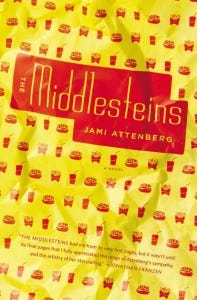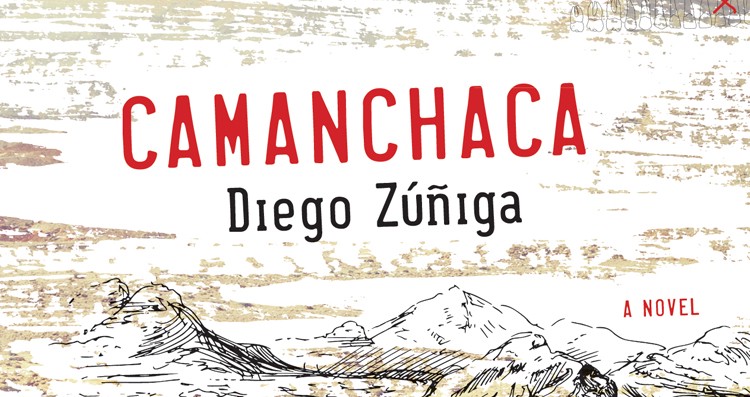Books & Culture
Review: “The Middlesteins” by Jami Attenberg

by Julia Jackson
A novel about family, fierce women, and an obsession with food

Jami Attenberg’s new novel, The Middlesteins, is about an unhappy family in crisis. The heart of the crisis, and the book itself, lies in mother and wife Edith. We see “Little Edie Herzen, age five: Not so little” at 62 pounds. We see Edie, at 160 pounds, and her future husband, Richard Middlestein, on their first date, which concludes at the hospital room of her dying father. He does “not abandon [her] in [her] time of need,” but he also doesn’t know that “his happiest days were behind him the moment he met her.” We see Edie at 210 pounds, devouring McDonald’s, and Edie at 332 pounds — in the present — retired, sick with self-inflicted diabetes, and alone. Surrounding her, but never satisfying her, is her love of food. Surrounding her, but never reaching her, is her concerned family: the emotionally cold daughter Robin, the frequently stoned son Benny, his tightly-wound (to put it mildly) wife Rachelle, the grandkids — twins Emily and Josh — and, of course, Richard Middlestein, still the husband, but now living alone. At this late stage in their life, he has chosen to leave her, while she is sick, old and vulnerable. Of course this demonizes him. Richard is in exile, and so Richard throws himself into his dying pharmacy and online dating.
But it is more complicated than that. Richard says he cannot go on watching Edie kill herself, and under Attenberg’s skilled hand, we believe him. And besides, Edie is a difficult woman: strong-headed, fiercely intelligent, and capable of extreme cruelty. And especially capable of cruelty that is directed at Richard.
Attenberg’s novel reminds me of another great Jewish novel to come out this year, Joshua Henkin’s The World Without You. They have more in common than their Jewishness; both stories are about families split apart by difficult circumstance, and couples enduring a late divorce. There are their multiple viewpoints, which encourage and allow us to understand, even like, the flawed family members that they follow. There is fine writing: unadorned, piercing prose, masterful storytelling, a tight understanding of plotting and story arc and when to satisfy and when to withhold. And, most powerful of all, there is a fearlessness of tackling the cruel, sometimes ugly, sometimes beautiful, heartbreaking matters that make up a family, that make up being human. Both books embody the reason that I love to read — they enable me to get lost in, engulfed in, the intricacies of the lives of made-up people so thoroughly that I forget those that make up my own. While the Frankel family in The World Without You is torn apart by an untimely death, the Middlesteins are divided by something that is perhaps much more common and definitely less talked about, at least in literature: obesity and an unhealthy obsession with food.
But there is one additional element that makes Attenberg’s novel more relatable, to me at least. And that is Edie’s fierceness. Edie is a difficult woman, and difficult women tend to breed other difficult women. In this book, we see this thread run through her daughter Robin and granddaughter Emily. Difficult women are often strong-headed, fiercely intelligent, and adept at cruelty, yes. But they are difficult because they are complex; they are also often vulnerable, sensitive, and capable of big-hearted, unabashed acts of kindness. For Edie, this comes through in the legal work she does pro-bono. For Attenberg — who, I suspect through her blog posts and my limited personal interactions, is also a difficult woman — it comes through in her magnificent prose.
The Middlesteins has already been named a best book of 2012 by Amazon, and I suspect that this is just the first of “best of” lists it will show up on as the year draws to its close. And for good reason — The Middlesteins is a complicated, beautiful, and fearless book.
***
— Julia Jackson is a contributing editor for The Outlet.









